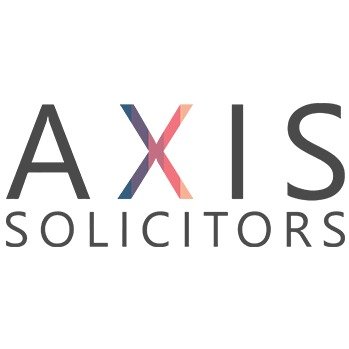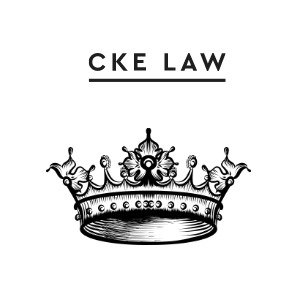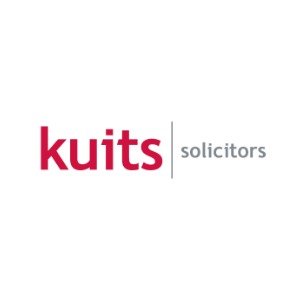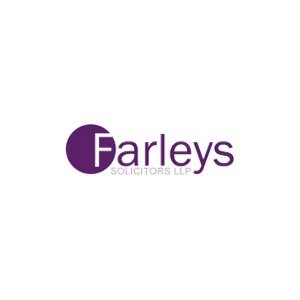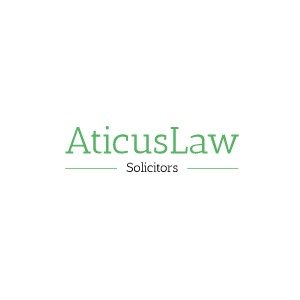Best Tax Increment Financing Lawyers in Manchester
Share your needs with us, get contacted by law firms.
Free. Takes 2 min.
List of the best lawyers in Manchester, United Kingdom
About Tax Increment Financing Law in Manchester, United Kingdom
Tax Increment Financing (TIF) is a financial tool used by local governments in the United Kingdom, including Manchester, to stimulate economic development. TIF allows local authorities to fund infrastructure and community improvement projects by earmarking future tax gains created by the increased property values and economic activities in the designated area. In Manchester, TIF is a significant mechanism for urban revitalization and the redevelopment of underused areas. It aligns with the city's broader strategies for sustainable growth, encouraging investments while balancing the tax burden on citizens.
Why You May Need a Lawyer
Tax Increment Financing can be a complex process involving multiple stakeholders, including local governments, developers, and property owners. You might require a lawyer in situations such as:
- Negotiating or drafting agreements related to TIF projects.
- Understanding the financial implications and potential risks involved with entering a TIF district.
- Ensuring compliance with local and national regulations regarding TIF funding.
- Resolving disputes between parties, such as issues with contractual obligations or financial distributions.
- Guiding through the process of approvals from government bodies related to TIF projects.
Local Laws Overview
In Manchester, TIF is governed by specific local ordinances and national regulations. Key aspects of these laws include:
- The requirement for a detailed redevelopment plan that outlines the scope and impact of the project.
- The establishment of a TIF district, which must meet certain criteria to qualify for funding.
- Legal stipulations on how the increment in taxes is calculated and allocated.
- Mandatory public consultations and transparency measures to ensure community involvement.
- Regulations on the duration of TIF districts and conditions for their extension or termination.
Frequently Asked Questions
1. What is a TIF district?
A TIF district is a designated geographic area where tax increment financing is used to fund public and private development projects to boost economic growth.
2. How does the TIF process work?
TIF involves assessing an area's current tax base and earmarking the future tax revenue generated from increased property values for investments back into the district over a period.
3. Who can initiate a TIF project?
Typically, local authorities propose TIF projects, but private developers and community groups can also initiate proposals, subject to approval.
4. How is the community involved in a TIF project?
Community engagement is integral, often involving public hearings where residents can voice support or concerns, ensuring transparency and collective decision-making.
5. Are there risks involved with TIF?
Risks include potential overestimation of future tax revenues, delays in project completion, and unforeseen economic downturns affecting anticipated revenue.
6. Does TIF increase tax rates?
No, TIF focuses on the additional tax revenue from increased property values, not raising the actual tax rates for existing properties.
7. What happens at the end of a TIF period?
Once a TIF district's term ends, the increased tax revenue typically reverts to general public services rather than being reinvested in the district.
8. Can TIF funds be used for any type of project?
TIF funds are generally used for infrastructure improvements, property development, and projects that support economic growth and community benefits.
9. What legal documents are involved in TIF?
Legal documents include development agreements, financial reviews, public disclosures, and compliance certifications, all requiring thorough legal scrutiny.
10. Who oversees TIF projects?
Local government bodies and financial oversight committees monitor these projects, ensuring adherence to legal, financial, and community objectives.
Additional Resources
For further assistance and information on Tax Increment Financing in Manchester, consider reaching out to:
- The Manchester City Council for local TIF policies and procedures.
- UK Department for Levelling Up, Housing and Communities for national guidelines.
- The Greater Manchester Chamber of Commerce for advisory services and community feedback.
- Legal databases and consulting firms specializing in finance and real estate law.
Next Steps
If you need legal assistance regarding Tax Increment Financing in Manchester, the following steps can guide you:
- Identify the exact nature of your legal needs, whether it involves contract negotiation, compliance, or dispute resolution.
- Consult a lawyer with specialized experience in tax, finance, and real estate law pertinent to TIF projects.
- Gather all relevant documents related to your TIF project, including official plans, communications, and financial statements.
- Schedule an initial consultation to discuss your situation and get professional advice.
- Remain informed about both local developments and broader economic insights to make informed decisions.
Lawzana helps you find the best lawyers and law firms in Manchester through a curated and pre-screened list of qualified legal professionals. Our platform offers rankings and detailed profiles of attorneys and law firms, allowing you to compare based on practice areas, including Tax Increment Financing, experience, and client feedback.
Each profile includes a description of the firm's areas of practice, client reviews, team members and partners, year of establishment, spoken languages, office locations, contact information, social media presence, and any published articles or resources. Most firms on our platform speak English and are experienced in both local and international legal matters.
Get a quote from top-rated law firms in Manchester, United Kingdom — quickly, securely, and without unnecessary hassle.
Disclaimer:
The information provided on this page is for general informational purposes only and does not constitute legal advice. While we strive to ensure the accuracy and relevance of the content, legal information may change over time, and interpretations of the law can vary. You should always consult with a qualified legal professional for advice specific to your situation.
We disclaim all liability for actions taken or not taken based on the content of this page. If you believe any information is incorrect or outdated, please contact us, and we will review and update it where appropriate.




